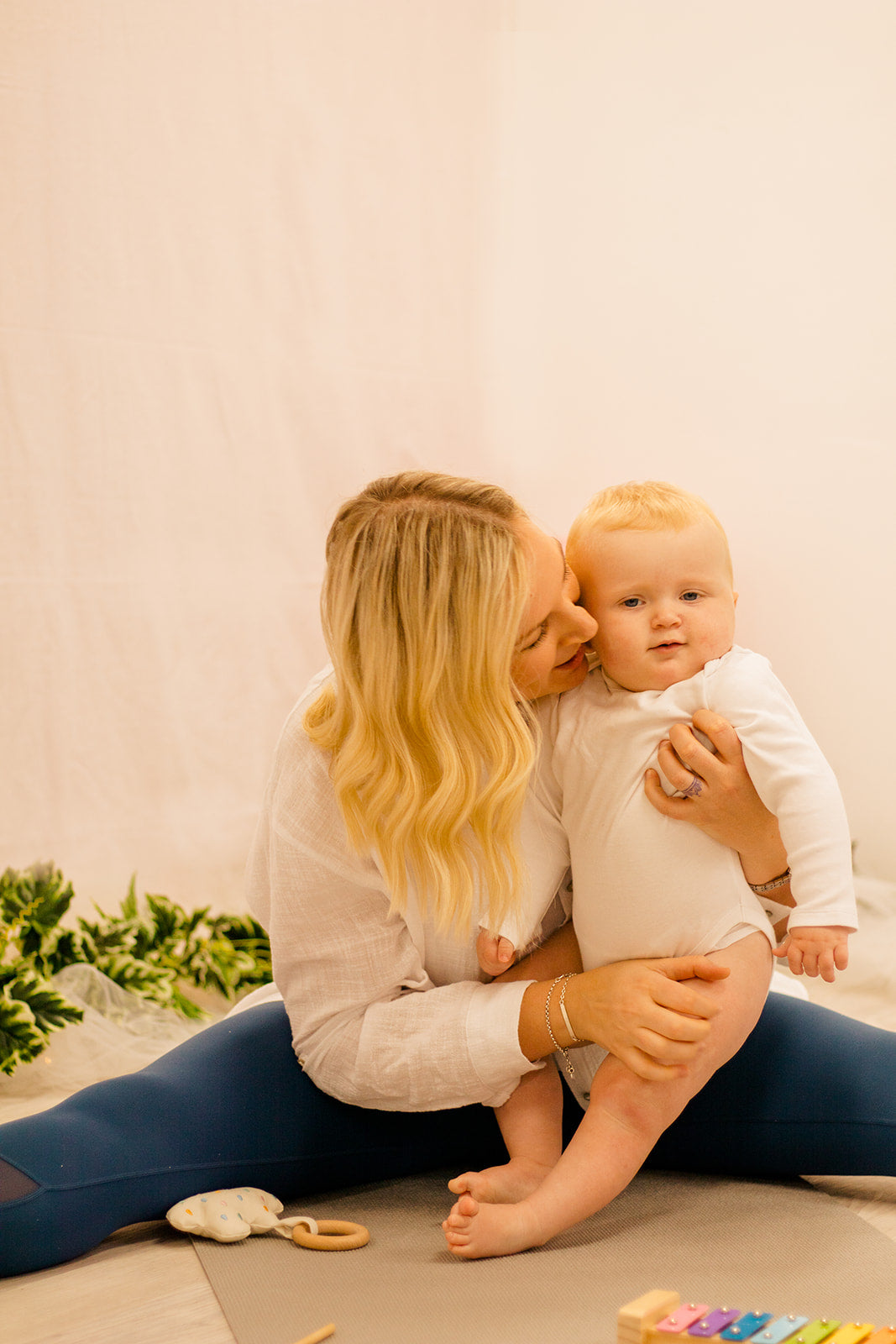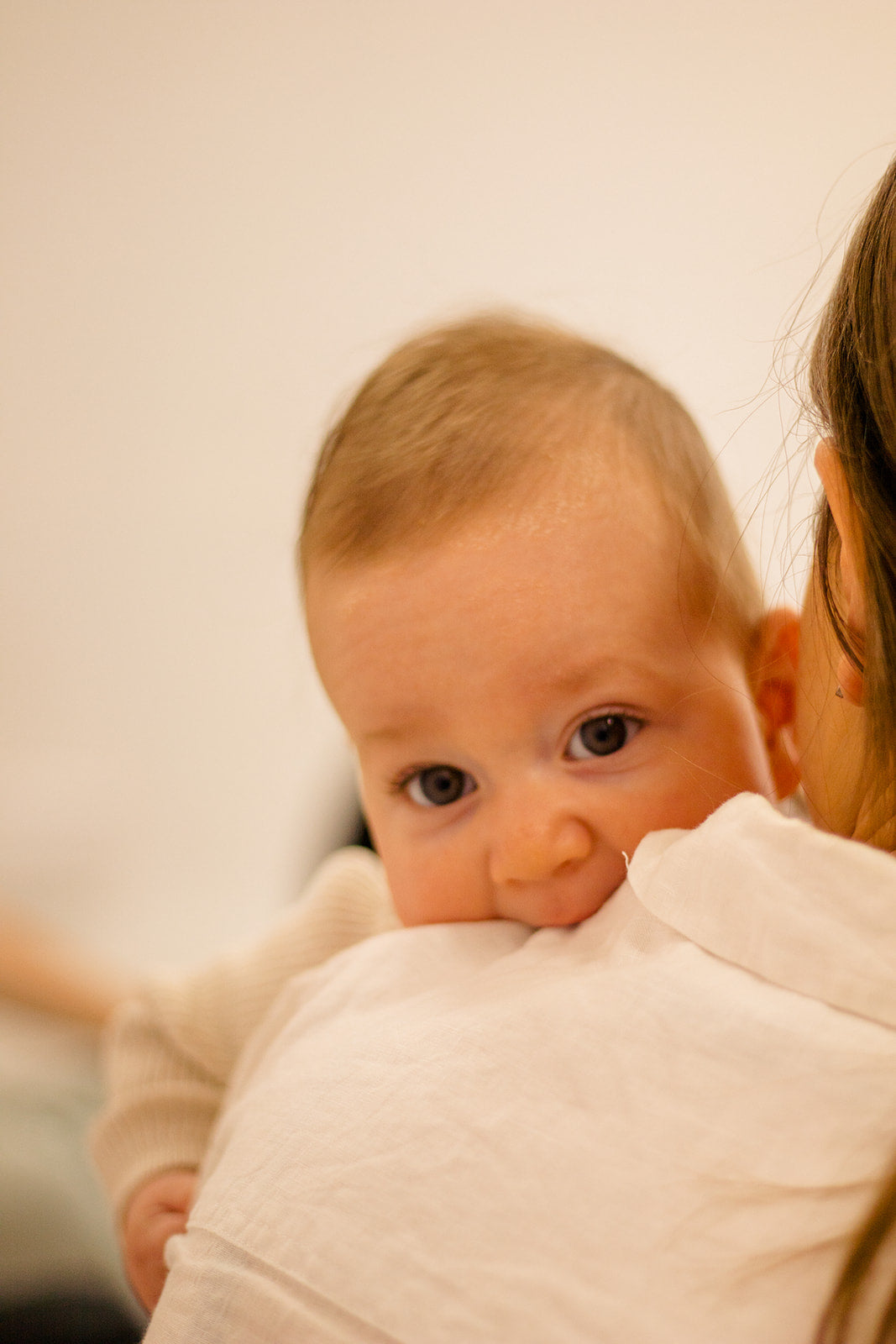The Unseen Load of Motherhood

Motherhood is a transformative and beautiful journey, but it also comes with its unique set of challenges.
We are all too aware of the physical demands of birth and caring for a newborn, often leaving the mental and emotional load accompanying motherhood unseen. In our Nurturehood classes, we place a lot of focus on recognising and validating this experience. As a result, we have had many beautiful conversations where our group mums have shared tips and tricks for emotional and mental wellbeing. Here are a few of our favourites!
1. Recognising the Mental and Emotional Load
The mental and emotional load of motherhood refers to the constant cognitive and emotional efforts that motherhood demands. The responsibilities can quickly become overwhelming, from scheduling appointments and ensuring the baby's wellbeing, to managing household tasks and dealing with sleep deprivation. Many new moms juggle multiple roles, struggle with self-doubt, and experience heightened emotional sensitivity, impacting their mental wellbeing.
So, acknowledge it! Recognise that these are extreme and unique circumstances that require a little self-compassion. In Nurturehood, we strongly advocate the idea that we should have the same grace and compassion for ourselves that we would give our best friend!
2. Prioritise Self-Care
Finding time in motherhood for self-care is a challenging but essential task! Taking care of yourself allows you to better care for your baby. Here are three tips our class mums have mentioned as tried and true ways to support your mental wellbeing:
a) Seek support: Reach out to family, friends, or your Nurturehood group for emotional support, practical help, and encouragement. Surround yourself with people who can provide guidance and reassurance during challenging times.
b) Carve out "me" time: Schedule regular breaks to engage in your favourite activities that rejuvenate and nourish your mind and body. Whether it's reading a book, taking a walk, practising yoga, or enjoying a hobby, dedicating time for yourself helps recharge your emotional batteries.
c) Ask for help: It's essential to recognise that asking for help does not make you any less capable as a mother. Delegate tasks, share responsibilities with your partner or loved ones, or consider hiring professional help where possible. Remember, seeking support is a sign of strength, not weakness.
3. Practice Mindfulness and Emotional Awareness
Mindfulness and emotional awareness can significantly contribute to your mental wellbeing as a postpartum mom. Here are three strategies to incorporate into your daily routine:
a) Mindful breathing: Take a few moments each day to focus on your breath. Deep, intentional breaths can help calm the mind, reduce stress, and provide a sense of grounding amidst the chaos of motherhood.
b) Practice self-compassion: Be kind and gentle with yourself, acknowledging that motherhood is a learning process. Embrace self-compassion by recognising that it's normal to make mistakes or feel overwhelmed at times. Treat yourself with the same understanding and forgiveness you would extend to others.
c) Validate your emotions: It's common for new moms to experience a wide range of emotions, including joy, sadness, frustration, and exhaustion. Instead of suppressing or ignoring these feelings, validate them. Allow yourself to feel and express your emotions without judgment. Journaling or talking with a trusted friend or therapist can provide a healthy outlet for processing your thoughts and feelings.
The mental and emotional load of motherhood can be overwhelming, but by recognising its presence and taking proactive steps to support your mental wellbeing, you can navigate the postpartum period with more resilience and joy. Prioritising self-care, seeking support, and practising mindfulness and emotional awareness are great ways to make sure you are taking care of you! Remember, you deserve care and compassion just as much as you give to your precious little one.




